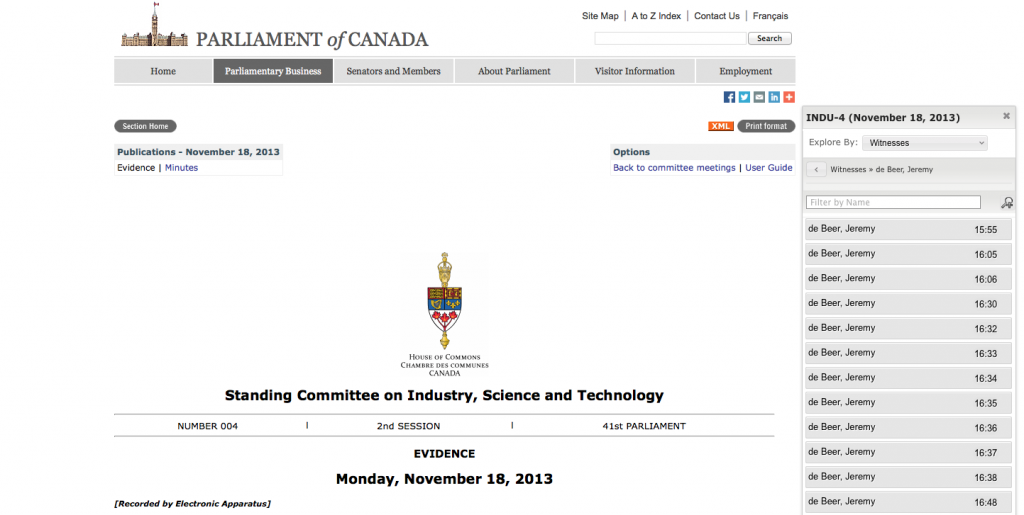Parallel imports are not pirated goods nor counterfeit products. Rather, they are genuine articles sold in another country with the authority of the intellectual property rights owner. Parallel imports help to prevent geographic price discrimination. They are one way of encouraging pricing parity across borders, and an essential aspect of free trade.
Testifying to the Parliamentary Standing Committee on Industry, Science and Technology, I expressed my worry that the proposed legislation in Canada – Bill C-8, the Combating Counterfeit Products Act – creates the risk of inadvertently undermining the benefits of parallel importation.
“… it’s very common for Canadian businesses, particularly small and medium-sized enterprises and large businesses like Costco, to engage in parallel importation to offer consumers more choices, to promote pricing parity with other jurisdictions. I think the trademark aspects of this bill deal with that fairly well, but I’m very worried about the copyright language in the copyright section. I couldn’t understand that this bill will assure us that parallel imports will be permitted, in respect to the copyright provisions, in particular.
… I’m glad to hear the committee and my fellow witnesses’ interest in making sure that the bill doesn’t deal with parallel imports and grey market goods. My fear is that particular provisions, such as clauses 44.01, 44.11, and 44.12, don’t actually make that clear enough. I think an exception that specifies that this does not apply to parallel imports, if drafted carefully, would be fantastic.”
You can read the full transcript and listen to the audio recording of my testimony on Canada’s Parliamentary website.
During questioning from the INDU Committee, I also addressed administrative aspects of the Bill.
I believe that Bill C-8 strikes an appropriate balance in providing effective procedural remedies and anti-counterfeiting support to rights holders without unduly burdening taxpayers with the full costs and complexities of enforcing private rights. I believe it would be impractical and excessively costly for taxpayers to impose further obligations on customs and border services officers than already provided for in the bill—certainly without increased budgetary support. Extending the act’s application to in-transit shipments, for example, would increase the administrative burden on officials and the financial burden on taxpayers. So might be the imposition of an obligation upon public officials to destroy or indefinitely detain suspected, but not confirmed or of interest to the rights holder, infringing goods. I think statutory damages may also skew the balance in the bill too far away from parallel importers or other small businesses that offer choices to consumers but are not trading in truly pirated or counterfeit goods.
On the topic of statutory damages, an area of particular concern for me, I further explained:
I have no sympathy whatsoever for pirates or counterfeiters, but in cases of legitimate disputes the threat of statutory damages can dramatically shift the balance of power. A trademark owner or a copyright owner can actually bully the other party away from even taking an issue because the consequences of losing with statutory damages are so serious, whereas the status quo of proving trademark infringement damages seems to work reasonably well and, in cases of legitimate disputes, allow the parties to make their arguments in court.
Following my testimony, Bill C-8 has gone through (all) three of the required readings in the House of Commons.
